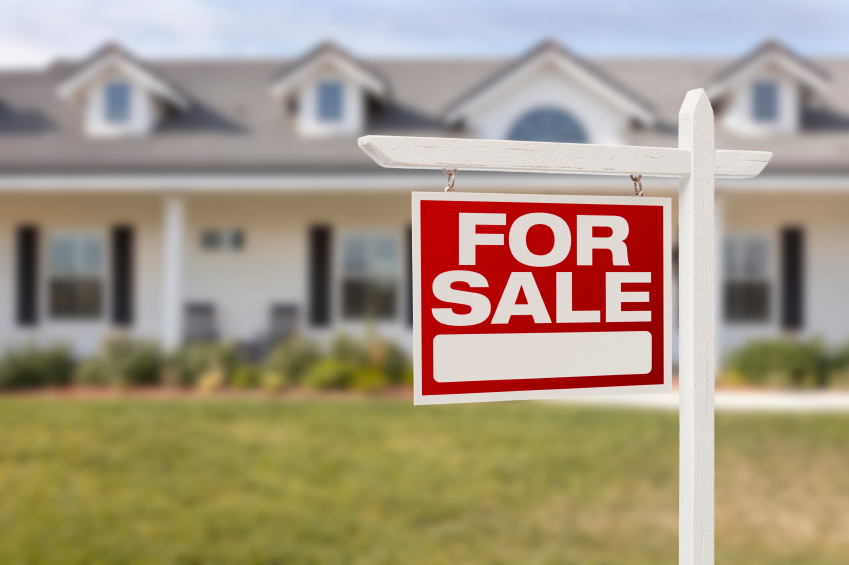Renting or Buying: That is the Question

It's the million-dollar question: Is buying a home better than renting a home? The answer depends on a few factors, but in the majority of cases, people who buy wind up with the better deal, at least from a financial perspective. But it's not always about money. I've put together a list of things to think about when you're making the decision to buy a home or rent one.
Flexibility
One of the big benefits of renting a home is that it's a flexible arrangement. While you might sign a year-long lease, after the year is over, you have the option of finding a new place to live or of sticking around. The flexibility renting brings can be particularly useful if you're in a transitional period of your life. For example, if you're in graduate school, working a temporary job, or working with a company that requires you to change locations on a regular basis, renting might be the easier option.
Stability
On the flip side, buying a home gives you stability that just doesn't exist when you rent. When you own a home, there's no risk that the landlord will decide to kick you out or that the monthly cost will increase sharply. Laura Tanner, writing in the Christian Science Monitor, describes the feeling of owning a home as 'ineffable.' Tanner moved a lot during her childhood and very much enjoys the stability found in owning her own house.
Responsibility
Owning a home means being responsible for certain things. Depending on your outlook, this newfound responsibility can be a blessing or a curse. For example, I personally hate dealing with plumbing. When I was a renter, it was no big deal: If the sink was leaking, I could just call up the landlord or property management company and someone would arrive to fix the issue. As a homeowner, it's now my responsibility to either deal with the plumbing issue myself (no way!) or call up a professional.
Of course, with the added responsibility of homeownership comes a bit of added freedom. We've all lived in rental units with questionable design choices. Once you buy your own home, you have the option of peeling off that lackluster wallpaper, replacing that weird green carpeting, or leaving well enough alone if that's your choice.
Take a Look at Your Savings
Buying a home means having enough money for a down payment on the property. You can take out a Federal Housing Administration loan, which requires just 3.5 percent down. But in exchange, you need to pay mortgage insurance, which adds to the monthly cost of the loan.
If your savings are on the light side, it's a good idea to keep renting. Aside from having enough money to make a down payment, buying a home means having enough money set aside to take care of any issues that arise. Remember the plumbing issue I mentioned above? When you're the homeowner, you not only have to schedule the plumber, but you're on the hook for paying them, too.
Cost Today
Once you've weighed the differences in lifestyle issues when considering renting or buying, it's time to think about the cost. In the majority of cases, it's cheaper to buy your home than to rent. For example, Business Insider reported that the average monthly mortgage payment at the end of the fourth quarter of 2012 was several hundred dollars cheaper than the average monthly rent at the same time.
When it comes to the cost of renting over time, the forecasts aren't exactly sunny. The USA Today reported that rental costs are expected to climb by 4 percent a year in 2014 and 2015, for example. While that rate might keep pace with inflation, you need to ask yourself if your paycheck is going to keep pace with inflation. If not, you might find that the cost of renting your home becomes more and more expensive without a payoff.
Cost Over Time
When deciding whether to buy or rent, it helps to look to the future. If you plan staying put in one area, buying can be the better deal, as the cost of the mortgage will decrease over time. But when you rent, the costs will continue and you won't have built up any equity in the property. You'll still be on the hook for paying rent even after you retire, for example.
There's also the cost of moving from rental to rental to think about. If you change homes or apartments every few years, you can expect to shell out several thousand dollars per move. The exact cost depends on how far you have to travel: Longer moves tend to cost more.
So should you rent or buy? In the end, it's up to you, your bank account, and your personal preference. While renting has its perks, buying might be what pays off in the long run.
